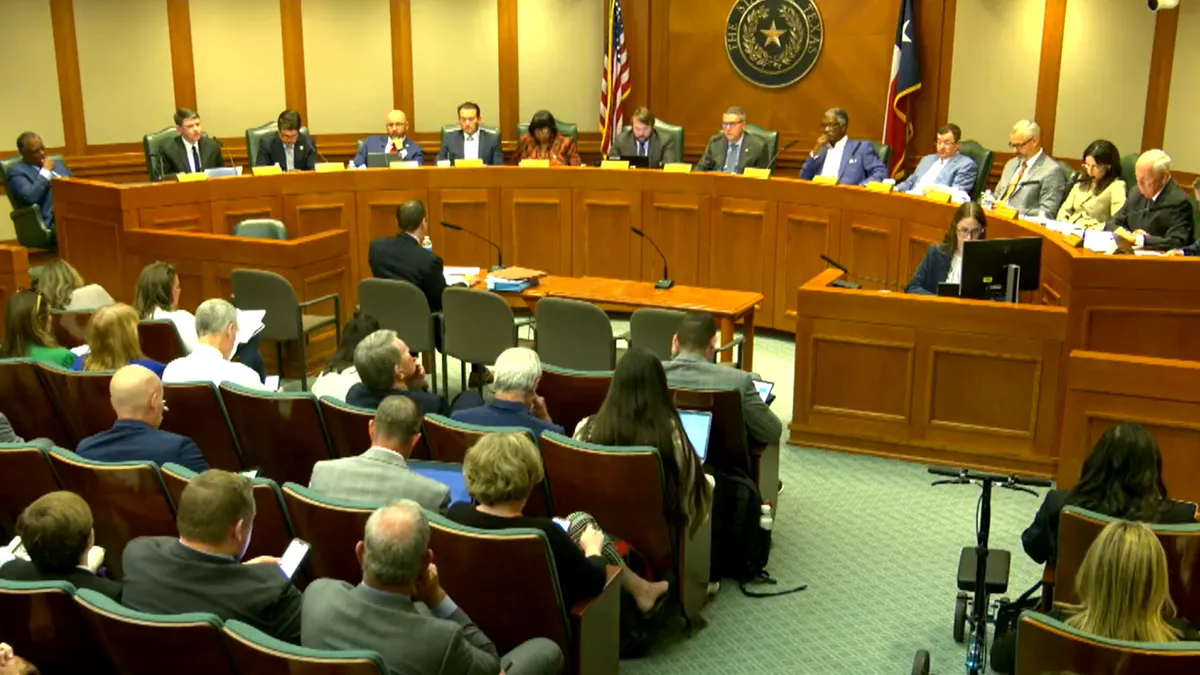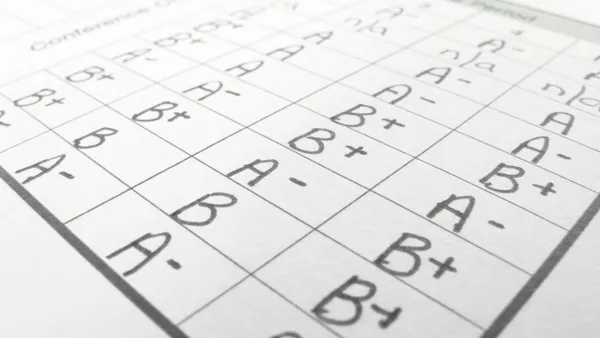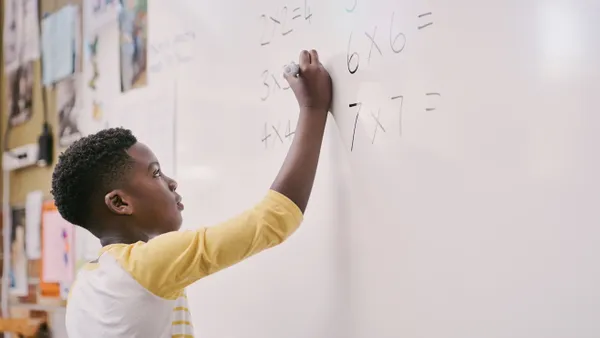Dive Brief:
-
Texas state lawmakers grilled Education Commissioner Mike Morath this week over the motives and content of the new state curriculum to be adopted under a sweeping law passed last year. The new materials will be introduced to classrooms in August 2025, according to the Texas Education Agency.
-
The law, H.B. 1605, was meant to provide teachers with state-approved high-quality lesson plans and give parents access to view those materials. However, some of the materials developed have caused an uproar for containing religious lessons that opponents say favor Christian teachings.
-
At the same time, the law provides teachers immunity if they violate the First Amendment's Establishment Clause, which bars government sponsorship of or favoritism toward any religion over another.
Dive Insight:
In a Texas House Committee on Public Education hearing on Monday that covered recent education policy changes, Democratic Rep. James Talarico pointed to various examples of the curricula being removed or changed in a way that he says favors Christian teachings.
Talarico said the Texas Education Agency removed sections from earlier draft versions of the new curricula related to Buddhism, Hinduism and Judaism, as well as all mentions of the Islamic prophet Muhammad. At the same time, the agency added biblical stories to the curriculum, he said.
In an elementary school example Talarico cited, an earlier version of the draft curriculum included a Christianity lesson that defined "messiah" as "a savior predicted by ancient Hebrews and believed by Christians to be Jesus." The final Texas lesson on Christianity says, "The messiah is the savior sent by God," according to Talarico.
Talarico, who is a former public school teacher and attends seminary, said the curriculum is "preaching" rather than "teaching." As a result, he warned Morath that he was "working with fire" and being "reckless."
Morath said the curricula includes references to other religions throughout, but he didn't specify any larger lessons on other faiths.
Morath acknowledged that "there's a variety of things that cause folks to have hesitation" in the new curricula, and that H.B. 1605 offers teachers immunity from the Establishment Clause as "a method to take that off the table."
Texas leaders in recent years have come under fire from public educators for moving to censor materials related to climate change and race.
The state’s move, with this curriculum, to blur the line between state and church in schools follows a similar trend in other Republican-led states, such as Louisiana and Oklahoma.
Louisiana passed a law earlier this year requiring all public school classrooms to display the Ten Commandments. That law is now facing legal hurdles prior to its Jan. 1 implementation date.
In Oklahoma, education leaders approved the nation's first religious public charter school. However, the school's opening was put on an indefinite pause following a legal challenge from state Attorney General Gentner Drummond that is expected to escalate to the U.S. Supreme Court.
Just days after the Oklahoma Supreme Court's decision that the religious public school was unconstitutional, State Superintendent Ryan Walters required through a directive that schools teach the Bible and make a copy of the religious text available in every classroom. The directive also required that schools incorporate the Ten Commandments as instructional support for grades 5-12 starting in the 2024-25 school year.
Oklahoma school district leaders have come under fire from Walters for opposing his directive.








 Dive Awards
Dive Awards





